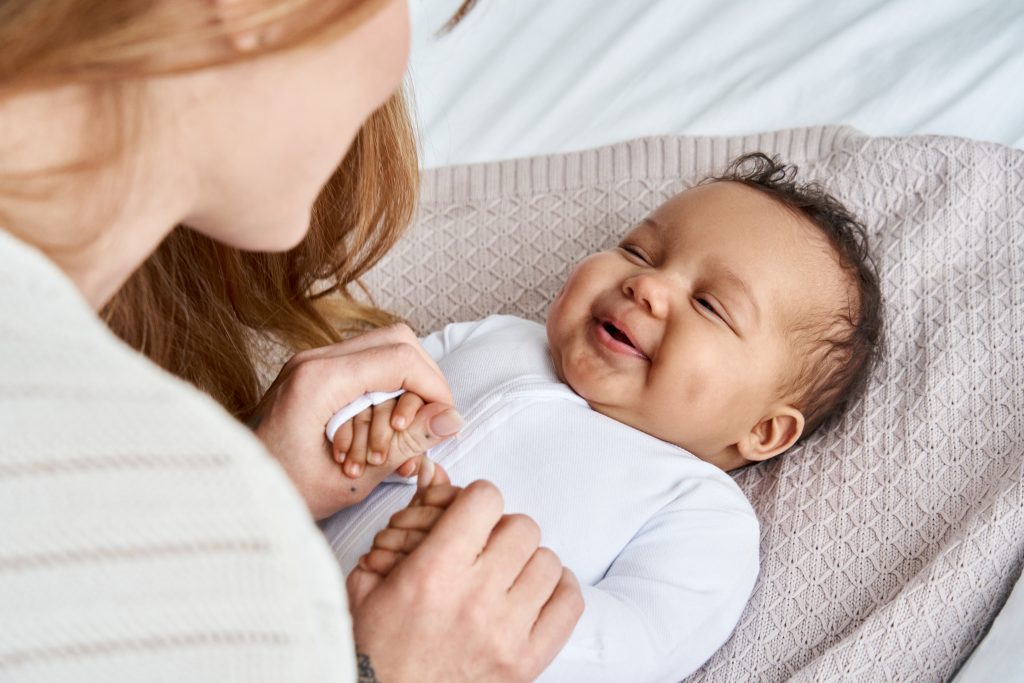There’s no better sound than that of a laughing baby. The radiating joy is simply contagious, and once we hear the sound, we never want it to stop. But babies’ laughter is more than just a sign that they are happy. It can also be a sign that they are developing properly and beginning to understand more about the world around them.
When and Why Do Babies Start Laughing?
According to the BBC, babies can start laughing as early as three to four months old. At this age, laughter is usually triggered by something a parent does or something a baby hears. For example, playing peekaboo and tearing paper have both been known to cause babies to giggle. By seven to eight months, babies can make faces or noises to make others laugh. At nine and 10 months, they might do something they know they shouldn’t with a “cheeky grin on their face.” The BBC also notes that surprises are a great way to get your baby to laugh, though they must still be in the mood for humor, just
like adults. Surprises can include inserting different words into their favorite songs, tickling or unexpected noises.
Why is it Important?
According to Scientific American, babies are born with “some simple expectations about how objects behave, which, when violated, results in their rapt attention. Such violations, it turns out, are powerful catalysts for humor.” When parents or siblings do something that is unexpected, babies often find it funny, but there is a deeper significance to this reaction. Laughter in babies can be a sign of crucial psychological development, such as “realizing that they are their own person and acquiring object permanence,” according to the University of Connecticut. According to a study published in the Journal of Experimental Child Psychology, laughter can signify “infants’ detection of incongruity and their possible understanding of simple deception.” It can also represent “major social-emotional milestones of infancy including attachment, social referencing, and self-regulation.” Babies also use laughter to gain the attention of parents or caregivers. Because they understand that parents enjoy listening to them laugh, they will often laugh in order to gain or keep active attention.
Laughter Triggers to Try
Sounds
• Raspberry noise
• Paper tearing/crinkling
• Copy noises your baby is making
• Animal sounds
• Water noises/splashing
• Exaggerated crying
• Exaggerated sneezing
• Shushing
Actions
• Peekaboo
• Making silly faces
• Tickling
• Changing words in their favorite songs
• Using objects for the wrong purpose
• Bouncing
• Pretending to make mistakes or dramatically falling over
• Waving towels or blankets in front of or over them
• Rapidly and repeatedly kissing their face or belly
• Pretending to eat their hands or feet
• Interacting with older siblings
• Putting objects like a cup on your head and then pretending it’s lost
Remember that if your baby is not in the mood to laugh, they probably won’t. If they don’t respond to laughter triggers within a minute or two, give them a break and try again later.
Related Articles:

